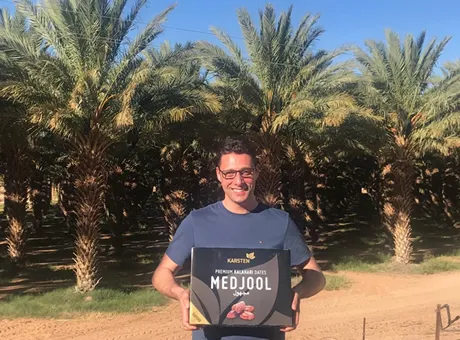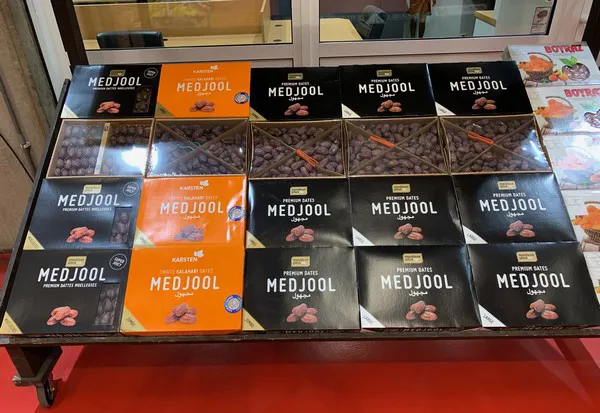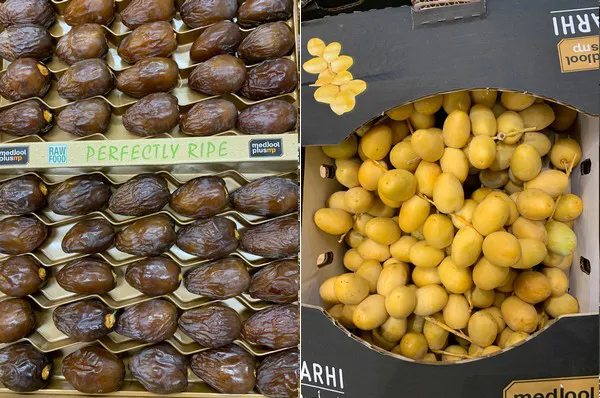Though delayed, the Israeli date season is now in full swing at Lorre, in Belgium. "We started about three weeks later, with 30% of the crop still hanging on the trees," begins Laurent La Morella. "It's rained some recently, though. If that continues, it could affect those dates that still have to be picked."

The late start does not seem to have negatively impacted the fruit. "We have better quality and especially larger fruit. There are more larger sizes than last season. However, volume is down between 15 and 25%. There were more dates this year, but some didn't develop into brown-red dates, so there are fewer of those. Much still depends on those last dates still being harvested," says Laurent.
Even for this importer specializing in MedjoulPlus dates, business is tougher than before. "There's a fairly stable demand, though, because consumers are now well-familiar with dates. The new dates are also entering a relatively empty market. There's some crop from last season, but since we began three weeks late, there are far fewer of those than usual."
"However, customers used to appreciate cheaper dates too. These days, quality tops price. If people want dates, the quality simply has to be excellent. There are plenty of cheaper dates, but they're less in demand," Laurent continues. That's certainly unusual, given how, these days, with the increased costs, many shoppers prefer 'cheaper' supermarkets and products.

Costs, climate make date cultivation increasingly challenging
Costs have risen considerably in date cultivation too. "As with everyone, overall costs have increased. More than half the growers made a loss last year. Also, the exchange rate is extremely disadvantageous for Israeli growers. That significantly increases prices, which we don't want to pass on to our customers. Dates must remain affordable; a commercial gesture our clients and the growers highly appreciate."
Growers face additional challenges besides costs. "It's no accident that we started three weeks late. Climate change is making it harder and harder to deliver the same fruit quality. It affects dates' harvesting times and, therefore, volumes and quality," says La Morella. For now, however, it is not stopping growers from continuing to invest. "To guarantee the same quality, they keep investing in better, faster, more efficient sorting machines. These can also detect, say, insects and fungi."

Lorre not only has a year-round supply of dates from Israel, Jordan, and South Africa. Their range keeps expanding too. "Besides the entire dried fruit assortment, we're growing more and more in fresh fruits and vegetables, like citrus, apples, ginger, limes, zucchini, etc. That does require time and energy, which is why Dieter Van Halewyck recently joined our team. He'll focus on buying and selling. Neither is a minute too soon for us because, despite the difficult times, we're busier than ever," Laurent concludes.
For more information: Laurent La Morella / Dieter Van Halewyck
Laurent La Morella / Dieter Van Halewyck
Lorre
Warehouse 39-40, 112-154 Werkhuizenkaai
1000, Brussels, Belgium
Tel: +32 (0) 479 977 328 (Laurent)
Tel: +32 (0) 475 615 835 (Dieter)
Email: sales@lorrenv.com
